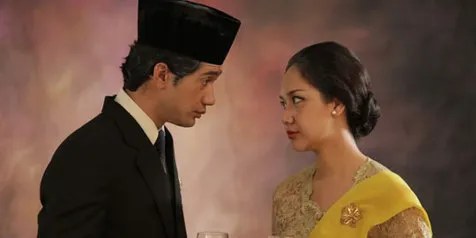“Today is Hari Kesaktian Pancasila, you know,” a friend told me first thing when I arrived in the office.
“Oh? Frankly, I actually forgot about it. Completely. All I remember is that today’s payday,” I said.
She chuckled. “Well, I remember only because it’s the same day of China’s National Day as well. My mom celebrates it.”
“Many people I met only vaguely remember what are 5 principles in Pancasila. What’s there to commemorate?”
*
Then my mind jumped right away to the movie “The Act of Killing,” a documentary by Joshua Oppenheimer on the 30 September Movement back in 1965, and the genocide that followed afterwards, and I couldn’t help but think how ridiculous this Hari Kesaktian Pancasila is. “Sakti” here is something similar to “powerful,” or “great.” I remember how watching Oppenheimer’s movie, especially the scene when a few of the perpetrators of the post-1965 killings showed how they were glorified for what they did back then in the name of Pancasila. I remember wondering whether they even understand what Pancasila is. Hell, I’m not even sure I truly do as well! For me, it’s just like those overly-idealistic principles that I always read in books.
Then as I found some time for myself when I got home, I became curious of how big this day is, then found some background information of how this day is related to the so-called 30 September Movement, which, despite the debate and controversy of who’s responsible for the ’65 coup, the New Order government decided and proclaimed (as we all know) that PKI (The Indonesian Communist Party) was responsible, and they decided to commemorate (1) the coup on 30 September, famously known as Gerakan 30 September/PKI (G30S/PKI), and (2) the so-called Pancasila on the day after, which is today, known as “Hari Kesaktian Pancasila.” And what’s ridiculous is an article ( Presiden SBY Pimpin Upacara Hari Kesaktian Pancasila ) I saw in Kompas earlier how they want to take in the values in Pancasila for the sake of the nation’s character building.
I felt depressed thinking about the philosophy behind this. What are they commemorating, really? The Pancasila? The “victory” over the massacre on the day before, done in the name of Pancasila? The fakeness of Pancasila?
Here’s Pancasila, by the way:
1. Ketuhanan yang Maha Esa (Belief in the one and only God)
2. Kemanusiaan yang adil dan beradab (Just and civilized humanity)
3. Persatuan Indonesia (the unity of Indonesia)
4. Kerakyatan yang dipimpin oleh hikmat kebijaksanaan dalam permusyawaratan/perwakilan (democracy guided by the inner wisdom in the unanimity arising out of deliberations amongst representatives)
5. Keadilan sosial bagi seluruh rakyat Indonesia (social justice for all of the people of Indonesia)
*translations are taken from: en.wikipedia.org/wiki/Pancasila_(politics)
Please, help me out here: “just and civilized humanity”? Our history is full of wounds from bloodsheds and pogroms, dating even way from the 18th century, and even until now many of the victims are still traumatized and paranoid when talking about it, then the government barely do anything about it. What is “just” about it? And humane? Discrimination, racism, and hatred surrounds the country, and the extremists won’t even hesitate to kill others in the name of their god, or the state (mostly god, though). In another documentary by Andre Vltchek and Rossie Indira on 1965 that I watched, “Terlena: Breaking of a Nation,” there’s this narration by Len Tooke that got me chuckling: “Although Indonesia claims to have a population that is 100% religious, it is arguably among the world’s least compassionate nations.” Seriously, “humanity?”
“The unity of Indonesia?” Extremists are burning temples, churches, destroying other believers’ sacred ground, calling them names, then other extremists got back for revenge–please tell me where the fuck is the unity in all these. We got chauvinist conservatives, extremists who are too narrow-minded and “exclusive,” who can barely conform and tolerate anyone but themselves. It sure sounds like “unity” somewhere there…
And “democracy”? You mean democrazy, yes? I laughed so hard when I read how Pram described that the presidents are “clowns” except for Soekarno, and how the painter, Djokopekik called the country is full of “buffaloes” in the documentary “Terlena.” Such representatives, they are.
And help me god, “social justice for all of the people of Indonesia?” A guy walked from his home, already destroyed by the Lapindo mud, to the capital city, wanted to meet the president to ask for what he’d promised: a compensation for his lost home and if I had not mistaken, he didn’t get to meet the big guy in the end (I forgot the link of the article. In case I got the information wrong, feel free to correct me and send me the link). Ask him where justice is.
So, Pancasila? Somehow it’s becoming more and more of a nonsense…


































































You must be logged in to post a comment.